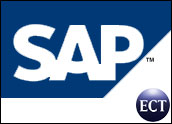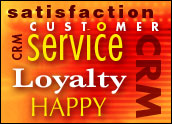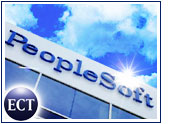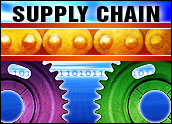
Nearly everyone who has ever phoned a company’s call center has encounteredlong hold times, multiple transfers and agents who seem too rushed to pay attention to customer queries. Siemens would like to file those common customer experiences awayin the “ancient history” category of CRM. With the introduction of a new contact-center application, the company is hoping calls can be routed better, making customers much more satisfied.
Siemens’ vice president of eCRM, Al Baker, spoke with CRM Buyer about the unique challenges of call centers and how those problems can be solved.
CRM Buyer: What do you think are the main challenges companies facewhen trying to run a call center effectively?
Al Baker: I think one of the biggest challenges is just the concept of the call center. The idea of a formal call center process can be problematic for organizations, because there’s a lot of call processing happening all over the company. It’s very challenging being able to track that and report on that, because it’s an informal system. But it’s so important.
Just think about when a customer calls a company, and that call is transferred 12 times. That happens because there’s no kind of strategy, no intelligence behind routing and definitely no monitoring being done. As a result, the company loses customers.
CRM Buyer: Siemens has recently announced the HiPath ProCenter Agile, a contact-center application for small and medium-size businesses. What made you decide to target this market segment?
Baker: For some people, the SME market means just small businesses, but a product like this can be used for a subset of a larger business. For example, if you take Wells Fargo, it has several subsidiaries, so it’s an important market to go after. The SME market is one of the largest and fastest-growing segments, especially for call centers.
CRM Buyer: What are some of the challenges that SMEs in particular must tackle in running call centers?
Baker: For most of them, regardless of where they’re located, their ability to purchase complex solutions is limited. They have to have a certain amount of resources to install it and work with it. Implementing and running a call center is a major challenge because in the SME world, you have to earn your paycheck every single day. They have to meet customer needs, and with limited resources, that usually translates to having a small number of people doing a wide range of things. A call-center representative might answer questions about service and billing and help out with shipping.
So, in SMEs especially, they need applications that are more flexible and can take advantage of what’s in-house to serve their customer base better.
CRM Buyer: What kind of flexibility would be needed in an application when you’re talking about a small call center?
Baker: While the killer app right now is skills-based routing, for many call centers, especially those in the SME market, it is often overkill. Yet it is particularly in this SME market that the need for first-contact resolution is most critical. Every customer you don’t take care of will call someone else. So, if you have people transferring calls from person to person, you’ll lose that customer forever.
Then your next question brings you to the need for presence-enhanced applications. Skills-based routing is not part of HiPath ProCenter Agile, it is presence-enhanced.
CRM Buyer: What defines presence awareness?
Baker: It’s the use of presence and collaboration. When I think of presence awareness, I think of my daughter, who uses AOL all the time to do instant messaging. She’s able to see when her friends are online — she’s aware of their presence. That’s one level.
With instant messaging entering the corporate world, presence awareness has become much more important for more than just teenagers looking for their friends. Now it’s a way for colleagues to see who’s online, and from that, they can collaborate instantly.
CRM Buyer: Why would this be important in a call-center setting?
Baker: What we’ve done is taken that concept and applied it to CRM. An agent can look at a team list, and when they need help, they’re able to find out who’s available without having to put the caller on hold and run down the hallway.
I used to be in call-center management, and I can’t tell you the number of times I saw call-center representatives put a caller on hold and then run around the office trying to find an answer to a question. And guess what happened to the caller on hold after a certain amount of time? They hung up, of course, and probably didn’t call back, because first-contact resolution wasn’t done.
With presence awareness, an agent has greater confidence about where help is. They can look at their buddy list and see who’s at lunch and who’s working. And from that comes collaboration, where someone can be called directly or even conferenced in. This is important, too, for supervisors to monitor work as well as to provide support.
CRM Buyer: Agile also provides information about an agent’s activities. With this kind of technology already built in to some systems, why did Siemens feel the need to add functionality in this area?
Baker: Most agents wait for this information at the end of the day or even at the end of the week. They might know how long they’re on each individual call, but they probably don’t know exactly how they’re doing in a broader sense. We felt that it was important to provide this, to give agents a gauge of where they are. It gives agents a better sense of control to be able to see, right in front of them, their productivity stats. Then an agent can say they’ve only handled a certain number of calls, so they should take more, or [can] see that they’re doing well in meeting performance goals.
Basically, being able to know if you’re on target, instantly, helps with productivity. And when it comes to call centers, everything is about people and productivity. Often, the call center is driving the business, and with an SME, many times it’s the heart of the organization. If you’re not doing it right, you need a defibrillator.























































